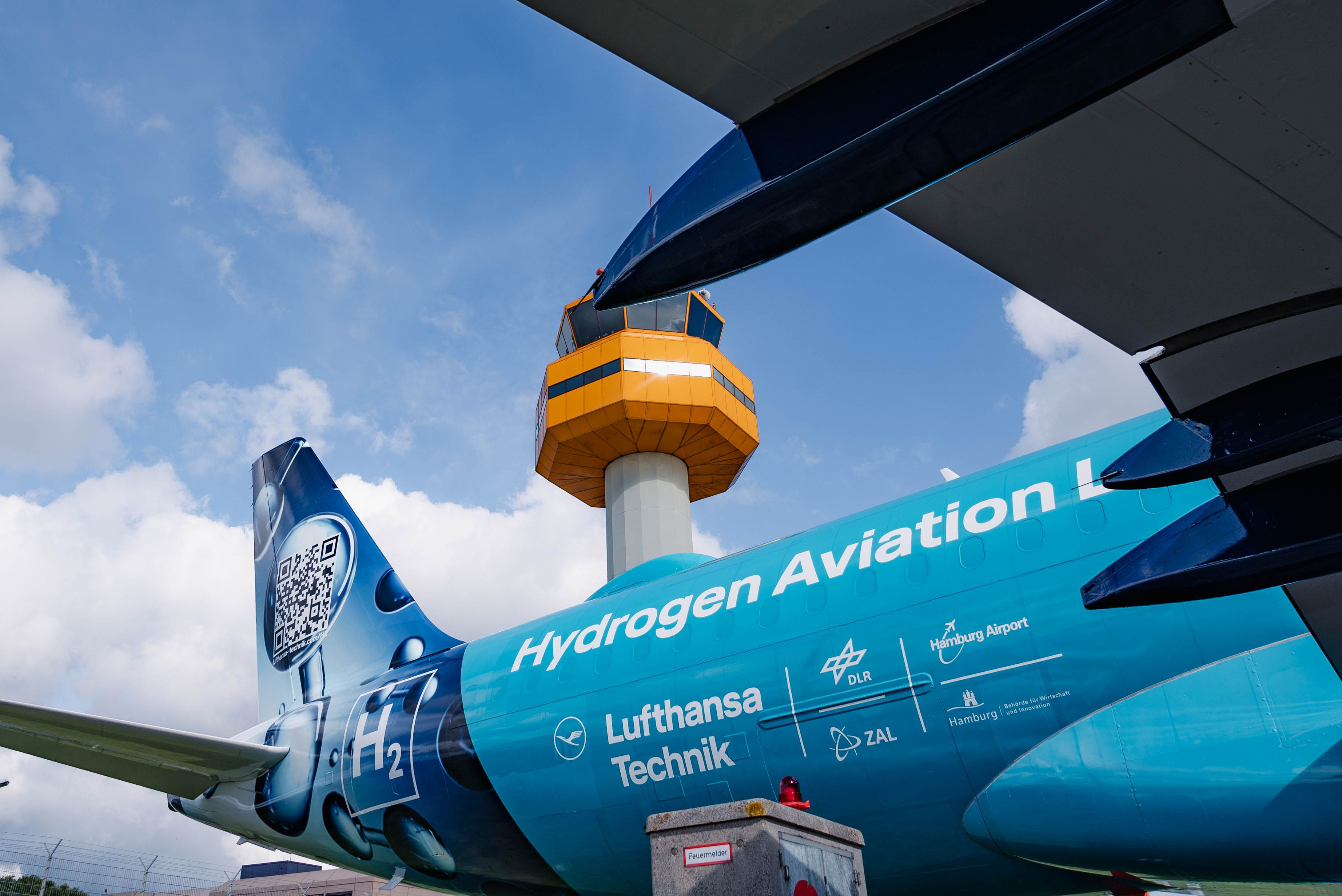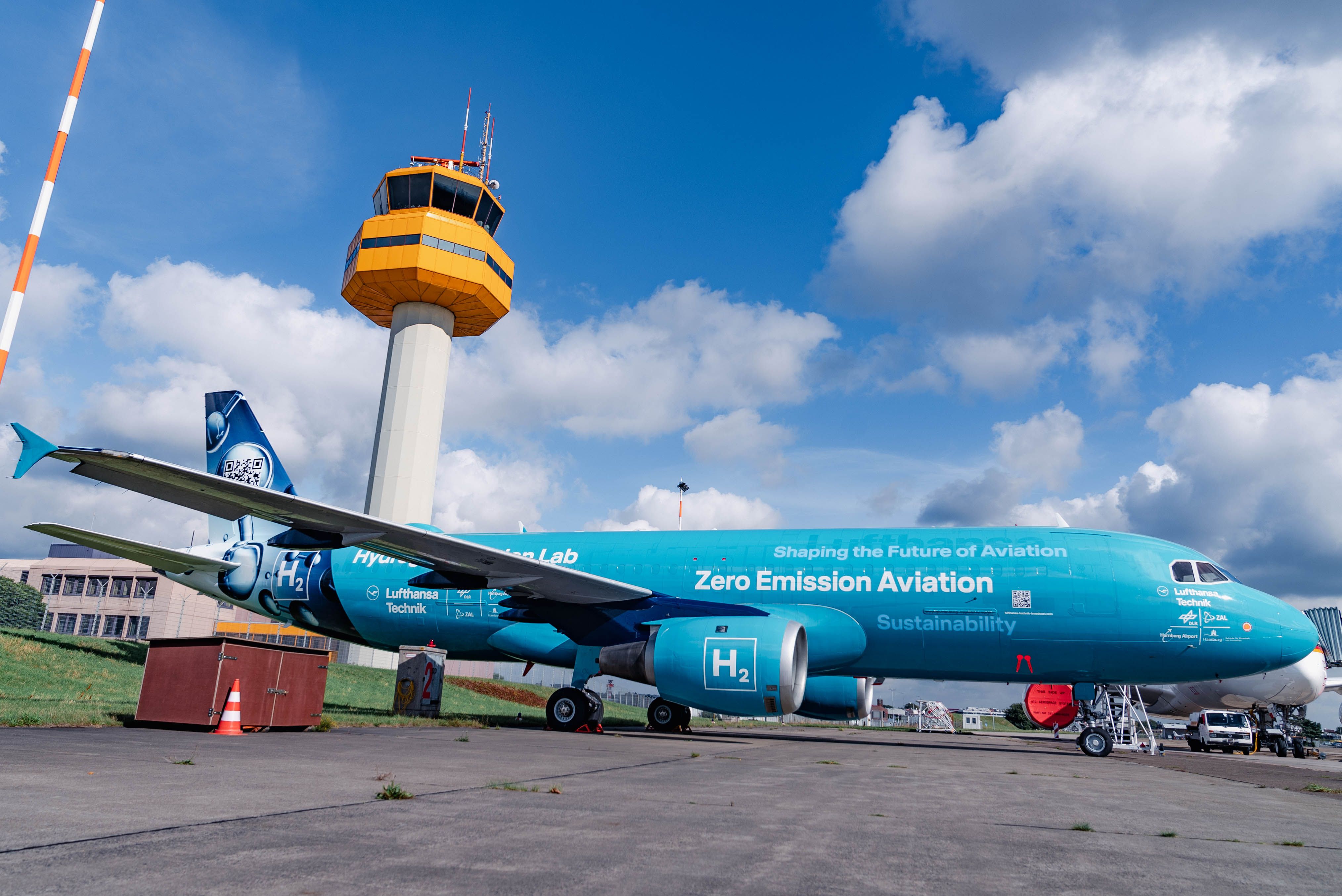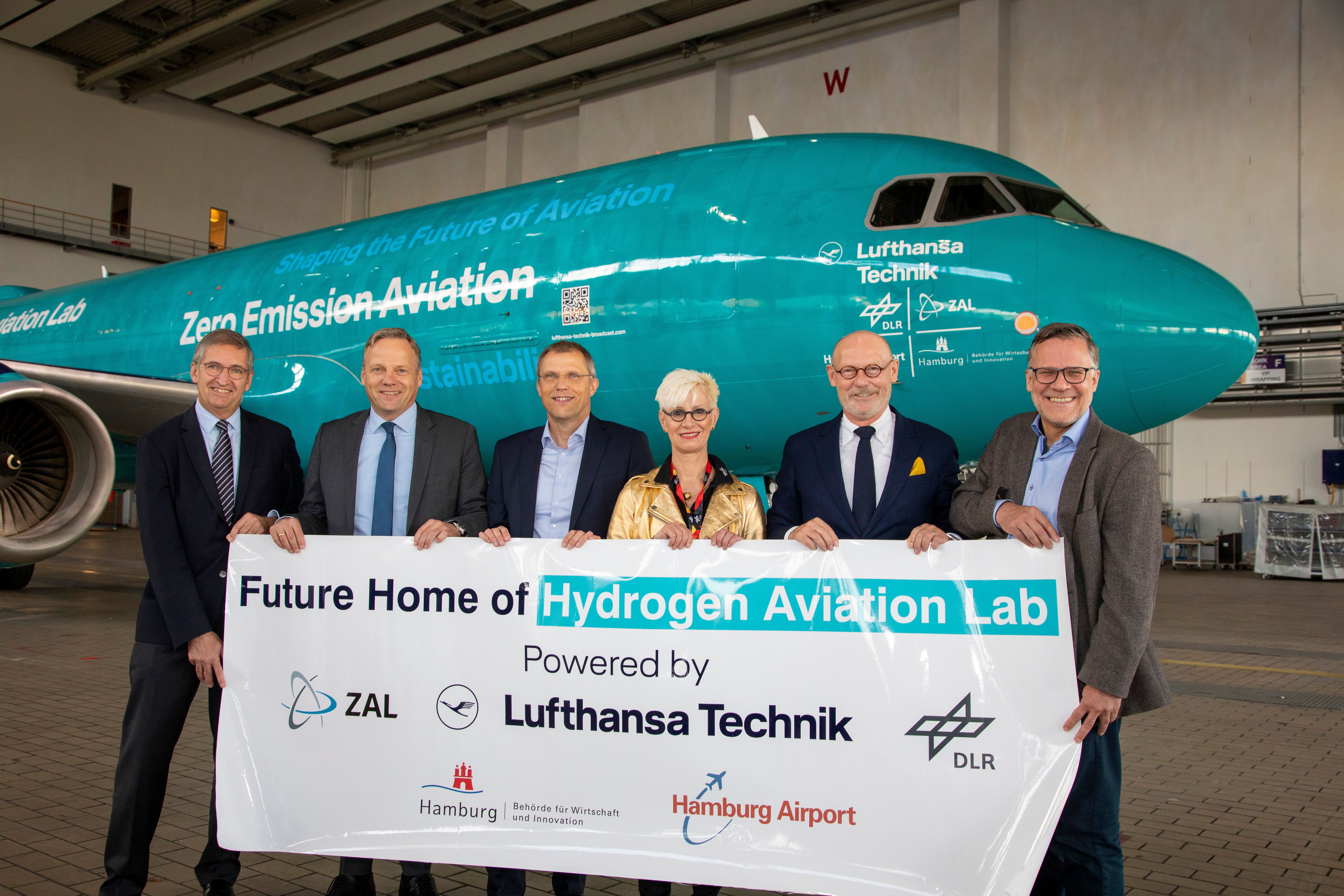Lufthansa Technik said on Friday it was providing an Airbus A320 with "a new lease on life in the service of science." The decommissioned jet will become the Hydrogen Aviation Lab in Hamburg, which will test maintenance and ground processes for future hydrogen aircraft.
The aircraft in question was built in 1991 and was delivered directly to Lufthansa, who operated the plane as D-AIQF (it was also known as "Halle an der Saale") until 2014. It then began flying for low-cost subsidiary Germanwings before returning to the mainline carrier again in 2017. Throughout its carrier carrying passengers, according to data from ch-aviation, it assembled 67,098 flight hours over 54,097 flight cycles.
Now, in the third decade of its life, the A320-200 gets to be part of ushering in the next era of aviation. Lufthansa Technik says it has now prepared the aircraft for its "crucial next stage." Over the coming months, it will be fitted with an internal liquid hydrogen fuel tank and onboard fuel cell, as well as a full suite of test systems. Furthermore, the project will set up a system for ground-based hydrogen infrastructure.
The aircraft has been painted in a special livery befitting its new task. However, it will no longer be capable of flying. Meanwhile, researchers and engineers will be able to tow it around to locations at the Lufthansa Technik base and Hamburg Airport. This will help them gain an understanding of how ground-based hydrogen processes will function in the real world.
The project also involves the creation of a so-called digital twin of the A320. Using this, researchers can develop and test predictive maintenance methods. This will allow the scientists to predict when a component will fail in the physical system ahead of when it actually does, which will allow timely replacements.
Valuable contribution to the use of hydrogen in aviation
The new Hydrogen Aviation Lab is a joint project between Lufthansa Technik, the German Aerospace Center (DLR), the ZAL Center for Applied Aeronautical Research, and Hamburg Airport, funded by the Hamburg Ministry of Economic Affairs and Innovation.
Hamburg's Senator for Economic Affairs, Michael Westhagemann, commented on the project,
"With the Hydrogen Aviation Lab, Hamburg has embarked on a great project. It will make a valuable contribution to enabling the use of hydrogen as a fuel for aviation. The focus on maintenance and refuelling procedures should provide us with insights that will be important for developing hydrogen infrastructure. This real-world lab lets us add a crucial building block to Hamburg's strategy to make aviation more sustainable. We are following two strategic goals: the development of a hydrogen economy in Hamburg and the decarbonisation of the mobility industries. We are very pleased to be able to make this world-first project possible through the Special Aviation Fund."
Topics of study
The main research topics the lab will investigate include:
- Refueling with liquid hydrogen (integrating it into existing airport infrastructure, ensuring competitive refueling times and processes, avoiding overfilling and wasting)
- Cooling, insulation, and occupational safety (prevent ice-building, look at additional protection requirements, etc.)
- Leakage of hydrogen gas, so-called boil-off (prevent uncontrolled escape of LH2 when it becomes gaseous, safety precautions for storage and fueling, recover escaped GH2)
- Making stored hydrogen inert (protect against fire hazards, suitable safety protocols, training for maintenance personnel)
What do you think of the Hydrogen Aviation Lab A320? Leave a comment below and share your take on the future of aviation.



